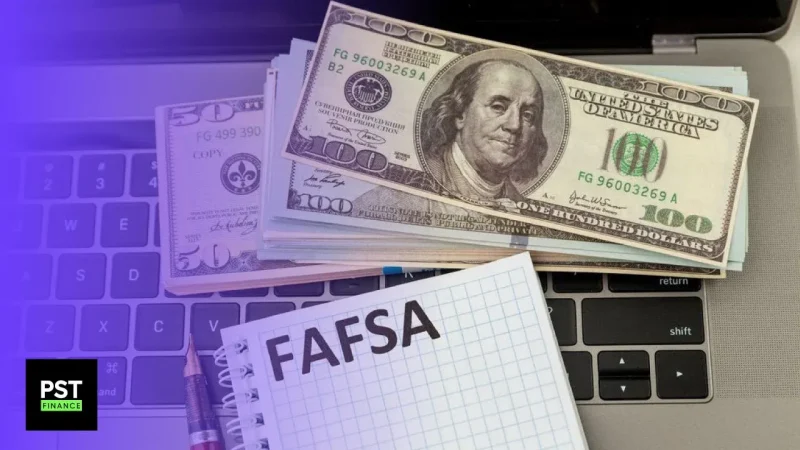Apart from the academic stress involved in the process of applying to a good school, one of the worst parts about going to college is obviously the financial trouble. Surely, you don’t want to spend most of your life paying off loans you took out to study for four years.
This leads students to turn to applying for the FAFSA, which is an attractive option for all students, given that it offers countless opportunities to get a good financial aid package. But, a lot of people still mess up their applications, or don’t want to apply at all, which could cost them thousands of dollars in unnecessary expenses.
Whether you’re skeptical about the FAFSA or really want to apply, you should know how important it is, and how to maximize your chances of getting an attractive aid package in ways you’ve probably never heard of. Here are some FAFSA tips that will help you save money on your tuition.
Always Apply
The first of the FAFSA tips should cover the first and biggest mistake you could make is to deceive yourself into thinking applying to FAFSA isn’t worth it. Many students and families feel like they make too much money to qualify for aid. This is unfortunately a very common myth, as some studies suggest above 50% of families believe so. First of all, it’s just not true: many families that make six figures or more end up qualifying for at least some form of financial support, even if it’s just federal loans. These are the best loans you can get compared to the many available private loans and their harsh terms, and so they are worth the trouble.
Second, some school scholarships cannot be awarded unless you have filled out the FAFSA form, because they use it to determine how much money they are willing to give you. Meaning, even if you’ve decided to only apply for institution specific awards, you might later be surprised to hear you’ve missed out on a lot of money just because you haven’t applied for a FAFSA. Some families have lost upwards of $40,000 as a result of this. For a concrete example of one of these FAFSA-based institutional scholarships, some schools offer a gap scholarship. Just from the name, this award is meant to offset the gap between the amount of money covered by FAFSA and the actual total value of tuition fees. For example, if your tuition costs a total of $30,000, and FAFSA covers $20,000, in some cases, a school could be able to offer you a gap scholarship that covers the remaining $10,000 of your tuition.
Obviously, though, schools can do that if you haven’t filled out a FAFSA form in the first place, so don’t waste the opportunity and always apply even if you don’t think you will qualify. The only exception to this rule is if you have concerns regarding immigration issues, but if you and your family are US citizens, then there is absolutely no reason not to apply.
Don’t Apply too Early or too Late
The next mistake you could make has to do with the question of when to apply for a FAFSA. You really don’t need to apply too early or too late either, and it is important to understand why in each case, so you can get a better understanding of the process. If you apply too early, you won’t give yourself enough time to carefully fill out the form. It’s not a very easy process, and a lot of attention to numbers and details is required. You’ll also have to think about what to report and what you shouldn’t report to maximize your chances of getting a good scholarship. We’ll get to all these details in a bit, but for now it’s enough to note that you should really give yourself enough time.
Unfortunately, many families don’t understand this, and they panic on October 1st, which is the date FAFSA applications open, when they can’t access the website. The website often goes down after receiving too much traffic on the first day, but it’s not the end of the world. It can be really frustrating, but remind yourself that it’s fine and recommended to yourself two or three weeks before submitting the application. With that said, it is still true that applying as early as possible is a good move. Ideally, you want to submit your application before the end of October. This is important for a number of reasons.
First of all, some schools have their own specific deadlines for FAFSA-based , which can be much earlier than average; as early as December in some cases. Second, many schools provide aid on a first come first serve basis, and this can apply to state and federal funds too. Obviously, the earlier you apply the higher your chances are.
Also, applying early also means that you will be able to get the results of your application early as well. This will give you the time to make corrections to your application if you’ve made any mistakes like fudging a number. More importantly, you will have time to evaluate the offers you’ve got from different schools and compare them to figure out which ones you can afford and which ones you have to rule out because they are way above your budget. If you don’t apply early, you could end up accepting a mediocre offer and spending a lot more money than you should. Now that you’re fully convinced that you should apply for FAFSA no matter what, and apply early, the next FAFSA tips will cover the crucial details of the application process, because understanding them well can save you thousands of dollars.
Know Which Assets are Protected
FAFSA allows the federal government to calculate your Expected Family Contribution (EFC), which they use to determine how much financial aid you deserve based on need. The idea is simple: based on the assets, savings and income of your family, they determine how much financial help your parents can afford to give you in order to help you complete your education, which is your EFC. If your EFC is high, you don’t have a lot of need, and so you may not qualify.
It should be clear by now that knowing when you are required to report an asset and when you are not can decide the result of your application. The government, unsurprisingly, is very strict when it comes to determining how family assets can be used to fund your education. As a result, students often get back EFCs that are much higher than their family can truly afford. For example, if the father is a farmer who owns a plot of land, you will be required to report the land as an asset, of course. Weirdly enough, the government will likely factor in the possibility of selling this piece of land to fund the student’s education, as unrealistic as that might seem.
Therefore, if you’re wondering how you can get around this, the answer is simple: know your rights. One of the assets people commonly report is the value of their home. In fact, home value is a protected asset on the FAFSA, which means you don’t have to report. Another commonly reported asset is retirement savings. The FAFSA form asks for the contributions made to the parents’ retirement accounts, but the total value of the account doesn’t have to be reported. Therefore, if the parents have a significant amount of money put away for retirement, they’d better not report it.
Lastly, another mistake is that self-employed people who are business owners often report the value of their business, even though they’re not really required to do so. When it comes to the income section, you surely have to report your business income or loss. However, for the assets section, you’re only required to report the value of your business if you have 100 or more employees. In simpler words, if your business is smaller, you just shouldn’t report its value.
For Divorced Parents, Report Only One
Setting aside the assets section, note that if the parents are divorced, then students are only required to report the income of the parent they have lived with the most in the last year. People often report the combined income of both parents even if they’re separated, which can unnecessarily hurt their chances, especially if the income of the parent they live with is much lower than the other parent. It’s crucial to keep in mind that for this to be possible, the separation doesn’t have to be a legal one. If the parents have recently separated and been living apart for some time, that’s enough.
Consider Becoming Independent
At this point an idea might pop to your head: if the financial status of your parents can hurt your chances and get you a much lower aid package than you deserve, why not just be independent? It’s actually a good option to consider, but things aren’t so simple.
The easiest way to be considered independent is ‘aging out’ of dependence so to speak. That is, to be older than the maximum age of dependence, which is 24 years old. If you wait until then, you will qualify for FAFSA as an independent person even if you still live with your parents and can get their support, so the option is there if you can afford to wait. Generally speaking, you have to look at section 3 of the form, which concerns your dependence status. If your answer to any of the questions is ‘yes’, you won’t be considered an independent person. Therefore, it’s not enough to live on your own and pay for your needs with your own money for that to happen.
Finally, you can apply for FAFSA every year. Even if you’re already in college, your financial aid package can be updated. Some students think that once they’ve started college they just should bother to apply anymore, but there are solid reasons to do so, aside from the obvious ‘you never know’ advice. In particular, FAFSA requires the financial situation of your family in the last year, and if your situation changes for any reason, you might qualify for a better package. Additionally, the government compares our financial situation with that of the average student at your institution, and if you’re at the lower end of the wealth spectrum relative to most students at your school you might qualify for a bigger financial aid package. Needless to say, the student body changes every year, and so you should apply every year.
Disclaimer
Please visit and read our disclaimer here.









